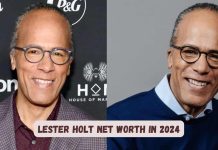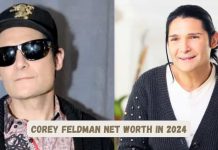
A family trip changed his life forever. A domestic accident caused the loss of her left hand, she lived in isolation for five years due to burns and was operated on 17 times. But the Uruguayan Alfonsina Maldonado (38 years old) does not know the word surrender. Today she has become a reference in horse riding and she does great social work with the families of children in the burnt hospitals.
Interview with Rita Mabel Maradona: “Diego would not only have given the Cup to Messi, he would have traveled hanging from the bus with the team”
Two months after the World Cup won by Argentina in Qatar, one of the star’s sisters imagines how Pelusa would have experienced the feat of the National Team: “He would have been captivated by the Cup. And my father would have prepared the barbecue for the celebration for the whole campus”
During a chat with infobaethe athlete told her story of resilience and the struggle to get financial support and thus be present at the Paris 24 Paralympic Games.
– What happened on May 1, 1985?
With the magic of Campazzo, Argentina beat Canada 83-72 and was one step away from the Basketball World Cup
Pablo Prigioni’s team undefeated the North Americans and if they beat the Dominican Republic on Sunday they will get the ticket to Indonesia, Japan and the Philippines 2023
– It was the day that changed my life, for the better. Over the years one learns that it changed my life for the better. My parents went for a walk with some friends in Montevideo and there was a power outage. They lit a candle, as is customary. A window opened and the candle fell on top of the cradle. I lost my hand, it was completely charred. I burned my face, which today I have nothing. Part of the head too. I was in a coma for 32 days. I lived for five years in an isolation room. Until I was 19 years old, I had surgical interventions.
Quickly, and thanks to the fact that they managed to get into a taxi that was already occupied, they went to the emergency room of a hospital. After five hours of operation, the surgeon came out with a plate with some “black sticks” and released a phrase that paralyzed the hearts of his parents. “I tried but I couldn’t, I couldn’t.”
Felipe Contepomi and his work with Los Pumas: “I don’t use the word conformity because it leads to mediocrity”
Assistant head coach Michael Cheika and backs coach tells how the Argentine team is preparing for the World Cup and how far they can go in Paris
The doctor’s words referred to Alfonsina’s left hand. “There was no hope of life and my godmother was the one who asked her what she couldn’t do. ‘Save her hand from her. But I did leave her arm,’ she explained to them. That is why I lived for so many years in the hospital in an isolation room, that is why this story is so marked. To save my arm, I had to undergo an infinity of treatments, of things, that have marked me for the better. You learn it over the years,” Maldonado recalled.

– Why did you spend five years in an isolation room?
– One is in isolation because anything makes you catch an infection. Today, that I go to hospitals, and that medicine has advanced a lot, you still see it. You see patients who are in isolation and get infections out of the blue. Now there is more technology, but infections are still caught. Anything. You open a door or the doctor didn’t wash well, you got infected. It was to achieve the reconstruction of the embrace.
During that treatment he only had a few brief periods when he was allowed to go home. On the days of healing they performed four scrapes (she went to a metal bathtub and they scraped her skin and poured a liquid on it), where she fainted from the pain. On some occasions they had to tie his hands and feet so that he could not touch anything to avoid infection and they placed a gag on him.
– How was living so long with restricted contact with your loved ones?
– It was a long road, but the most important thing to highlight is the transformation, the positive, the message you want to convey. We all have the capacity to get ahead, with a lot of will, a lot of effort. It is not an easy task to find yourself in a society that is so discriminating, so harsh, that it criticizes you for whatever you do. I focus more on that message, that transformation, on being able to transcend. Hence my visit to the president of Argentina.

– You just named discrimination. What was his teenage years like?
– Bullying existed all our lives, today it is called bullying, at that time the word did not exist. Tremendous, I think that Latin America is still behind on these issues as a society. That is why we have to transcend, cross borders, knock on doors and show that a hand can be different, a leg can be different, that we are all different. We have to have the ability to see beyond that.
– In total, they performed 17 operations:
– They did not operate on me anymore because in the last three invitations I had heart problems, from so many operations. And well, in the last operation I had a coma and said ‘no more’. The interventions were to reduce chronic pain in arm reconstruction, because my tendons are more compressed. What they did was decompress that. I want to highlight how one can transform. How many times that takes you to very dark places, but the ability we have to get out.
– How did you cope with this situation?
– With a lot of will. Will, I think you have to have the will and ability to transform tears into something higher.
– To someone going through a similar situation, what would you say?
– At the moment it is hard when you live an experience of this type. But you have to understand that one hand or one leg is not the end of the world. We don’t realize how important it is to breathe. When these things happen to you, you learn to live and really find the purpose of living, which is to dream big, without limits or borders. We all have that ability. Sometimes these things happen to wake us up.
– How did your relationship with horses come about?
– Of all my life, I come from a traditional, lower-middle-class country family. Horses have always been in my life, I am passionate about them. It’s in my blood.
And my story led me to compete. In the isolation room, the silence taught me that I had to transform that into something important to me, for me to survive. I turned it into dreaming of being an Olympian.
During his stay at the medical center he watched many horse riding competitions, it was a passion. Her grandfather, who lived in the next field, was one of those in charge of transmitting this feeling to her.

– And that dream finally achieved it
– I made it, but life is to reinvent yourself. Although I made it, now I have bigger dreams. Life is dreams and finding reasons every day to motivate and excel. Turn. Although I have a social work with burned children, I want to expand this message. And in sport I want to win a medal. That implies a great challenge, great will. That is why we are also here, in this sister country that is Argentina.
How was the Rio 2016 experience?
It was a very hard experience. Although it was magical because 32 years passed to fulfill that girl’s dream. It was very hard because the resources were totally limited, scarce. It was exhausting getting there.
It is an impressive discipline, of a passion that overflows your soul, that your heart beats really strong when you close your eyes and imagine yourself there. But you don’t have to get tired of knocking on doors, you don’t have to get frustrated when they say no, you have to keep trying.
Was your absence at Tokyo 2020 due to a lack of financial support?
Yes, it was due to lack of resources. I didn’t have the resources to do the rankings. He had the horse sponsored by Spain, a whole Spanish staff. Also some English and Dutch companies, but the money was lacking to be able to arrive.
Is your goal now to participate in the Paris 24 Games?
We currently have a great horse, which is sponsored by Denmark. In Uruguay we are forming a great team and we lack the economic part. That is why we are here in Argentina knocking on doors. It doesn’t have to be political. To dream is to have no limits. Stories are stories and they have to transcend, they don’t have to identify with any political party, but rather with whoever opens the doors for you, who is a person, regardless of their position.
– How was the meeting with President Alberto Fernández?
– This meeting was generated by Virginia Staricco, someone very important within my team. He received us as part of listening to my story as an athlete and my work in hospitals with burned children, because I was in Argentina at some point. The truth is that I was surprised by his generosity, his kindness, his predisposition, his charisma. A wonderful person. He doesn’t have to be political, he’s a person like any of us. Being received by a president, and from another country, is an honor.
During the interview, the Argentine boss was moved by his story and by that of the redalco foundation, an organization dedicated to collecting all fruit and vegetable waste and distributing it to the most humble homes in Uruguay. This foundation helped 60,000 families to have access to fruits and vegetables.

– What does your social work consist of?
– It’s with burned babies. I go into the isolation room and the moms are sometimes afraid to hug them because they are burned. And it’s important to embrace them. I am not afraid and I explain to them that it is the best remedy there is. There is no stronger morphine than mom’s love and hug.
What are your goals in the short term?
Arriving in Paris with this great team that we are forming, this team has no limits. I want to highlight their help, how they accompany me so that this is done. Also to the Argentines who opened their doors for me.
Getting to Paris is more important than a medal. It is not arriving in Paris because I felt like it, it is giving a message.




